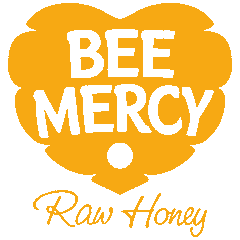What is Pollen? What can it do for us?
Aug 05, 2014
Bee Pollen is made by honeybees. It is considered one of nature's most completely nourishing foods as it contains nearly all nutrients required by humans. Bee-gathered pollens are rich in proteins (approximately 40% protein), free amino acids, and vitamins, including B-complex, and folic acid.
Bee pollen is a complete food and contains many elements that products of animal origin do not possess. Bee pollen is richer in proteins than any animal source. It contains more amino acids than beef, eggs, or cheese of equal weight. About half of its protein is in the form of free amino acids that are ready to be used directly by the body.
It is important to recognize that a one teaspoon dose of pollen takes one bee working eight hours a day for one month to gather. Each bee pollen pellet contains over two million flower pollen grains and one teaspoonful contains over 2.5 billion grains of flower pollen.
Dr. Gabriel Cousens MD, has listed bee pollen as one of his 22 most recommended food energies. Bee Pollen can be used medicinally for a wide range of conditions from prostate health to skin conditions and can help correct specific nutritional imbalances within the body.
Here are some reasons to add fresh bee pollen to your daily diet… although there are many more!
Energy Enhancer - The range of nutrients found within bee pollen makes it a great natural energizer. The carbohydrates, protein, and B vitamins can help keep you going all day by enhancing stamina and fighting off fatigue.
Skin Soother - Bee pollen is often used in topical products that aim to treat inflammatory conditions and common skin irritations like psoriasis or eczema. The amino acids and vitamins protect the skin and aid the regeneration of cells.
Respiratory System - Bee pollen contains a high quantity of antioxidants that may have an anti-inflammatory effect on the tissues of the lungs, preventing the onset of asthma.
Treating Allergies – Pollen reduces the presence of histamine, ameliorating many allergies. Dr. Leo Conway, M.D of Denver Colorado, reported that 94 percent of his patients were completely free from allergy symptoms once treated with oral feeding of pollen. Everything from asthma to allergies to sinus problems was cleared, confirming that bee pollen is wonderfully effective against a wide range of respiratory diseases.
Digestive System - In addition to healthful vitamins, minerals, and protein, bee pollen contains enzymes that can aid in digestion. Enzymes assist your body in getting all the nutrients you need from the food that you eat.
Immune System Booster - Pollen is good for the intestinal flora and thereby supports the immune system. According to holistic health expert Dr. Joseph Mercola, bee pollen has antibiotic-type properties that can help protect the body from contracting viruses. It's also rich in antioxidants that protect the cells from the damaging oxidation of free radicals.
Treats Addictions – Used holistically for healing addictions and inhibiting cravings by suppressing impulses. Because bee pollen crashes cravings, it is very useful research is needed into this benefit, particularly when it comes to weight management.
Supports the Cardiovascular System - Bee Pollen contains large amounts of Rutin; an antioxidant bioflavonoid that helps strengthen capillaries, and blood vessels, assists with circulatory problems, and corrects cholesterol levels. Its potent anti-clotting powers could help prevent heart attack and stroke.
Prostate Aid - Men who suffer from benign prostate hyperplasia can find relief by using bee pollen. Bee pollen can help reduce inflammation to stop frequent urges to urinate.


